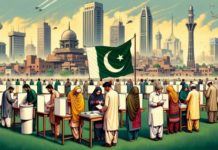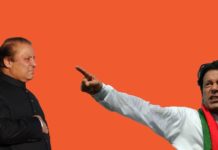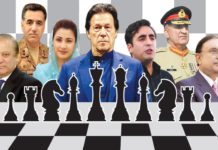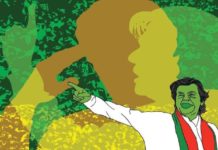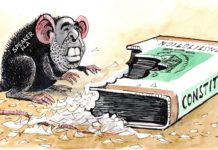Pakistan is facing serious economic crunch. During the last 10 years the elected governments have taken number of initiatives to stabilize the economy. But due to turbulent global environment, regional security conditions and domestic factors such as energy crisis, law and order, money laundering, tax evasions, no significant economic recovery could be achieved. High inflation coupled with low growth has led to rising poverty and dissatisfaction among the masses. This situation has worsened the image of Pakistan as inefficient and corrupt. Thus we have to deal with the situation on war-footing. We have to address public economic concerns through immediate effective measure even if it involves some hard decisions in the short term to achieve long term gains
The last decade has been the most difficult and challenging for Pakistan. It witnessed the impact of deepening global economic recession, economic sanctions and extreme money laundering issues. These three factors not only precipitated a balance of payments crisis but also damaged the gains achieved in the preceding years, and most importantly, interrupted the pace of implementation of structural reforms and stabilization measures.
Financial indiscipline and lack of coordination between fiscal and monetary policies led to the accumulation of large foreign and domestic debt, a high rate of inflation and increased vulnerability of the balance of payments and government budget. Instead of budgetary reforms, reduction in non-developmental expenditure, management of defense expenditure and recovery of defaulted loans, the governments opted for domestic and foreign borrowing to payback the foreign debt.
From the past 2 decades, Pakistan’s economy has been under the tutelage of IMF and World Bank. The GDP growth rate remained under 4 percent whereas the poverty remained high and affected large segments of society. The poor quality of governance and law and order situation aggravated the problems. Successive governments in Pakistan allocated major chunks of the budget for non-development purposes. Debt servicing and defense expenditures consumed a major part of the resources, affecting social sector development. Governments frequently acquired foreign aid and debt to meet their current expenditures. Pakistan could not attract much foreign development investment due to worsening law and order situation, and lack of incentives provided to foreign investors.
The current PTI government has summarized their vision for a prosperous Pakistan .However, current scenario is alarming and great efforts are required to overcome the existing crisis. A broad-based economic recovery is required, macroeconomic stability is a major concern and the external balance of payments is much worsened today than ever before. Economic policies are not consistent and transparent; stock market is not cheerful and expatriate. Pakistanis are reluctant in bringing their capital back, the current account balance is in deficit for many years in a row; foreign exchange reserve are on the verge of collapse; the interest rate environment for investment is fragile; the budget deficit has increased significantly and the country’s debt deficit has jumped sharply; exports, imports and tax collection are declining at double-digit level. Chaos If not, then what?
On the contrary, sincere efforts and effective policies can turn this situation around, slowly but surely. Prime Minister Khan and his financial cabinet seem hopeful and confident. There is today almost a consensus on the broad contours of economic policy although the modalities differ. This awareness and economic intellect will help in continuity. The present Government has identified the core issues and the economic revival strategy.

problem of rapid depreciation of the rupee.
Poverty reductions strategy needs to be revised, which links social and poverty related expenditures with the attainment of key social and human development outcomes. Transparency, consistency, and rule-based decision-making should begin to take roots. Local governments should be given the administrative and financial authority to deliver public services. Taxation reforms prominently should be on government’s agenda. Tax reforms need to be aimed at broadening the tax base and bringing in tax evaders under the tax net.
Pakistan needs to make its economy self reliant capable of sustaining the ripples/ crises independently without depending on foreign aids and financial support from the international donor agencies. Governments should take poverty reduction as the challenge for future. The benefits of macroeconomic success must reach the common man fast. Economic growth should be Pro Poor. Agriculture being the largest sector of the economy, its growth merits great attention. Create conducive environment to attract private investment. Overseas Pakistanis should be encouraged to establish the industrial units especially in the rural areas. Joint venture can be adopted with other countries in the defense production. Pakistan is already involved with China in various joint ventures. Till such time trade deficit is eliminated through enhanced exports, prudence in import policy is suggested. Domestic substitutes should be encouraged. Government must make endeavor to create business environment through institutional guarantees and improved law and order. Industrial exhibition abroad and concerted efforts by our missions and embassies would greatly help. Central Asia can also serve as a gateway to foreign investors. This is the only way to attract the blue-chip multinationals’ foreign investment in our country. Pakistan should continue to have a liberal foreign exchange and low tariff regime. Foreign investors should be free to bring in and repatriate capital, dividends, profits, remittances, royalties, etc. Better access of the poor to education and health care, and a better quality of these services is the need of time. Promoting gender quality is also essential for the achievement of the broader development goals. Government must attract expatriate Pakistanis for providing skilled expertise in order to overcome immediate deficiency of technical and managerial manpower.
The macro – economic policies and reforms programs pursued over the last one decade have only made the economy of Pakistan fragile and weak. It has set the stage for taking the economy on a destructive path. The horrors of macroeconomic losses have also started trickling down to the poor. A strong economic decline along with massive corruption scams and kickbacks are now beginning to yield difficulties in terms of growing poverty and decline in living conditions. Much damage has been done. Now we need to build from the scratch which will be both vital and challenging. Consequently, internal stability will play a pivotal role in the provision of an enduring strength to our economy in the years to come. Hopes and expectations from this newly elected PTI’s government are high, but can they deliver or will they be able to deliver under the pressure of extreme internal and external opposition? This remains to be seen.



